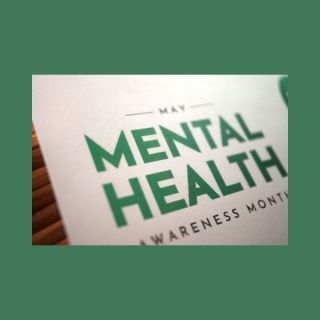Resilience
How to Improve Your Mental Health: Focus on What You Control
Regulating these four variables can make you healthier and more resilient.
Posted May 22, 2023 Reviewed by Devon Frye

The theme for this year’s Mental Health Awareness Month is “look around and look within.” The idea behind the theme is to help people understand the many factors that affect mental health, including neighborhoods and communities, relationships, and even nature.
While it’s important to recognize systemic factors behind mental health, creating change in these areas takes time and collective effort. In the short term, we can be empowered to make a difference in our own mental health by paying attention to the factors that are within our control. Using this information to take care of ourselves is the best way to protect our mental health and build resilience.
Below are four variables under our control. Focusing on these things will help keep you emotionally well-adjusted and able to deal with challenges that come your way.
- Our thoughts: Many of us experience negative thoughts, discouraging thoughts, and thoughts that affect our self-confidence and our ability to think positively. While these may seem uncontrollable, the good news is that we can affect them through effort and persistence. We must remember that our thoughts are not objective, and they are often presenting us with extremes. For example, if you have a lot of thoughts that tell you things will never work out or you are always going to be alone, remember that the world is not a black-and-white place. It’s filled with shades of gray. We want to think flexibly and believe that things can change.
- Our reactions: There are often moments in life when we cannot control our circumstances. We can lose our jobs or our partners, or become ill. But the way that we respond to our circumstances matters, and it can make a big difference in how we endure what comes our way. Even in our interactions with others, if someone is arguing with us, we do not have to react impulsively or angrily. We get to decide what we do next. Remaining calm or taking time to think through our next steps usually leads to feeling better about our choices, rather than reacting impulsively, and regretting our behavior later.
- Our network: Think about the people who make you smile, laugh, and bring you joy. Additionally, consider those who appreciate you, who are there when you need them, and who do not ask you for things that you are unable to provide. We should all cultivate a close circle of friends. The community that we create is within our control, and it can be so rewarding to have people who support us, and who we can support through difficult circumstances and uncertainty.
- Our coping skills: There are both positive and negative ways of dealing with stress. Avoiding our emotions, drinking too much alcohol, and isolating ourselves from others are negative coping skills that may feel helpful at the time. But they ultimately lead to greater stress and more problems than they solve. Positive coping skills include going for walks, sitting outside on a lovely spring day, doing things we enjoy, talking with people we trust, and taking good care of our bodies by eating foods that are good for us and staying away from excessive use of alcohol or caffeine. It’s not always easy to make good choices, but it can feel empowering to choose to cope in ways that big us feel happier and more at peace. When we know we are taking care of ourselves, we can become confident in other aspects of our lives.
Doing as much as we can to take care of ourselves and to be in charge of our mental health allows us to be more prepared when unexpected things happen in our lives. Regulating responses to our thoughts and emotions, finding a close-knit community to care for us, and using positive coping skills will give us the tools, and the strength, to face our trials and live our lives to the fullest. Once we feel confident about our ability to affect our own mental health, we have more capacity to tackle systemic issues and help those around us.


